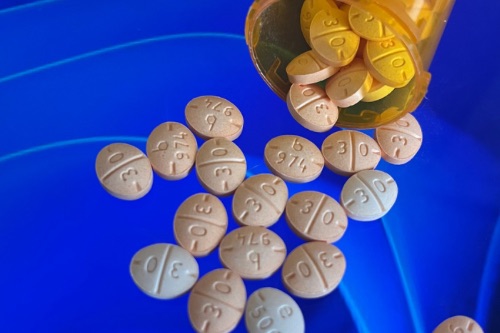Dr. Emily Hayman-Schmenk
Are you concerned about the potential risks of vaccines for your child, including autoimmunity and vaccine injury? Recent research has shed light on the role of genetic factors, such as SNPs and detox pathways, in these adverse reactions.
Studies have also linked the increased vaccine schedule to the rise of autoimmune disorders in children. Furthermore, some researchers have proposed that the addition of new vaccines to the schedule may be overwhelming children’s immune systems, leading to dysregulation and dysfunction.
If you’re interested in learning more about these important topics, check out this article on autoimmunity and vaccine injury. It discusses some of the latest research, risk factors, and lab tests that can help parents assess their child’s susceptibility to adverse reactions and implement strategies to reduce risk factors.
Vaccine injury is a rare but known potential adverse reaction to vaccines, and there are various risk factors that can increase the likelihood of experiencing a vaccine injury. Some of these risk factors include genetic variations in detoxification pathways and other genes that play a role in immune function, environmental exposures, and overall toxic burden.
One key factor that can contribute to vaccine injury is an individual’s ability to detoxify and eliminate toxins from the body. This process relies on a variety of enzymes and pathways, and genetic variations can impact the efficiency of these processes. For example, some individuals may have genetic variations in genes such as GSTM1 or GSTT1 (Nakanishi, et al., 2022) which are involved in the detoxification of environmental toxins, and may be more susceptible to vaccine injury.
Other genetic factors may also play a role in vaccine injury, including variations in immune function genes. Certain SNPs (single nucleotide polymorphisms) in genes such as HLA (Waisbren, B., 2008) (Ou, G., 2021) or the homozygous C677T MTHFR mutation have been linked to autoimmune conditions and impaired detoxification pathways, and may increase the risk of adverse reactions to vaccines.
Environmental factors can also contribute to vaccine injury. Exposure to toxins such as heavy metals, pesticides, or other chemicals can impair immune function and increase the likelihood of adverse reactions to vaccines. Similarly, poor diet, lack of sleep, and high stress levels can all impact immune function and increase the risk of vaccine injury.
Overall toxic burden is another important risk factor for vaccine injury. When the body is already burdened with toxins, including those from environmental exposures and poor diet, it may be less able to handle the additional toxic load presented by vaccines. This can lead to a greater likelihood of adverse reactions.
It’s important to note that these risk factors may increase the likelihood of vaccine injury, and it is important for parents to consult with their child’s healthcare provider to understand their child’s individual health history and any potential risk factors for vaccine injury. This may include a discussion of any underlying health conditions, family medical history, and previous adverse reactions to vaccines.
Parents can also work to support their child’s overall health and well-being through a healthy diet, regular exercise, and minimizing exposure to environmental toxins. This may help to optimize their child’s immune function and reduce their risk of adverse reactions to vaccines.
Ultimately, the decision to vaccinate a child should be made on a case-by-case basis in consultation with a healthcare provider, taking into consideration the child’s individual health history and any potential risk factors for vaccine injury.
While there is not currently a definitive genetic test or lab that can predict with certainty an individual’s susceptibility to vaccine injury, there are some tests that may provide useful information for parents who are concerned about their child’s potential risk:
- Genetic testing: There are various genetic tests available that can identify specific gene variants associated with increased risk for vaccine injury, such as the MTHFR gene variant. These tests can be ordered by a healthcare provider and are typically done using a blood or saliva sample.
- Comprehensive stool analysis: A comprehensive stool analysis can provide information on the gut microbiome and any imbalances or dysbiosis that may contribute to inflammation and immune dysfunction. This may be useful for parents who are concerned about their child’s gut health and susceptibility to vaccine injury.
- Environmental toxin testing: Testing for environmental toxins such as heavy metals or pesticides can provide valuable information for parents who are concerned about their child’s toxic burden and potential risk for vaccine injury. Hair, urine, or blood samples can be used for this type of testing.
- Detoxification pathway testing: Testing for specific genetic variants that impact the body’s ability to detoxify can be helpful in identifying potential risks for vaccine injury. The Cytochrome P450 genetic panel is an example of a test that can provide information on an individual’s detoxification pathways.
- Clinical evaluation: A thorough clinical evaluation by a healthcare provider can also help identify any potential risk factors for vaccine injury. This may include a review of medical history, physical examination, and laboratory testing.
There are several hypotheses about the relationship between the increased vaccine schedule and autoimmunity. One hypothesis suggests that the adjuvants in vaccines, such as aluminum, can overstimulate the immune system and trigger autoimmune responses. A study published in Cellular & Molecular Immunology in 2018 found that the human papillomavirus (HPV) vaccine was associated with the development of autoimmune diseases (Segal, Y. & Shoenfeld, Y., 2018). The study suggested that the adjuvants in the vaccine may be responsible for the increase in autoimmune diseases.
Another hypothesis suggests that the multiple vaccines given in a short period of time can lead to a phenomenon called molecular mimicry, where the immune system mistakes the body’s own proteins for foreign antigens and attacks them. Additionally, some researchers suggest that the sheer number of vaccines given in early childhood can contribute to an overall burden on the immune system, leading to an increased risk of developing autoimmune diseases. A 2020 study published in SAGE Open Med found that multiple vaccine doses in infancy were associated with an increased risk of developing asthma and allergy-related diseases (Hooker, B. & Miller, N., 2020)
Another study published in the Journal of Toxicology and Environmental Health in 2018 found a correlation between increased vaccination rates and the incidence of autism spectrum disorder (ASD). The study found that countries with higher vaccination rates had a higher incidence of ASD compared to countries with lower vaccination rates.
A 2022 study published in the Frontiers in Immunology found that vaccines can trigger autoimmune diseases by a variety of mechanisms, including molecular mimicry, epitope spreading, and bystander activation (Han, Z., et al., 2022). The study suggests that individuals with genetic susceptibility to autoimmune diseases may be at higher risk for developing autoimmune diseases after vaccination.
While these studies do suggest an association between increased vaccination and autoimmune disorders, it’s important to note that correlation does not necessarily equal causation. Further research is needed to determine if there is a causal relationship between vaccination and autoimmunity.
Toxins are all around us, and exposure to them can impact our health in a variety of ways. Children, in particular, can be more vulnerable to the effects of toxins because their bodies are still developing. Some toxins can also affect the body’s ability to detoxify, which can make them more susceptible to vaccine injury.
If you’re concerned about your child’s risk of vaccine injury, it’s worth considering testing for common toxins to identify any potential areas of concern. Here are some of the most common toxins to look out for:
There are several strategies that parents can implement to reduce the risk of adverse events or injury related to vaccination, both before and after immunization. Here are some examples:
- Work with a knowledgeable healthcare provider: Parents can work with a healthcare provider who is knowledgeable about vaccines and vaccine safety. They can discuss the potential risks and benefits of vaccination and address any concerns they may have.
- Strengthen the immune system: A healthy immune system can help reduce the risk of adverse events after vaccination. Parents can ensure that their child gets adequate rest, good nutrition, and exercise. They can also consider supporting their child’s immune system with supplements, such as vitamin D or probiotics, after consulting with a healthcare provider.
- Detoxification support: Parents can support their child’s detoxification pathways to help eliminate any toxins that may be introduced through vaccination. This can include providing a healthy diet, ensuring adequate hydration, and promoting good sleep. They can also consider supplements or herbs that support liver function, such as milk thistle or dandelion root.
- Antioxidant support: Glutathione is a key antioxidant that plays a critical role in detoxification. Supplementing with N-acetyl cysteine (NAC) or consuming foods that increase glutathione levels, such as cruciferous vegetables, can help support detox pathways.
- Avoid other environmental toxins: Parents can reduce their child’s exposure to environmental toxins, such as pesticides, heavy metals, and plastics. This can include choosing organic foods, using non-toxic cleaning products, and avoiding plastic containers and toys.Toxic chemicals can be found in a variety of household products and environments. Here are some of the most common toxins and where they can be found:
- Lead: Found in old paint, contaminated soil, and some ceramic dishes and pottery.
- Mercury: Found in some types of fish, dental fillings, and some cosmetics.
- Phthalates: Found in some plastics, personal care products, and food packaging.
- Bisphenol A (BPA): Found in some plastics, canned foods, and some receipts.
- Flame retardants: Found in furniture, electronics, and some textiles.
- Pesticides: Found in conventionally-grown produce and some household bug sprays.
- Volatile organic compounds (VOCs): Found in paint, cleaning products, and some air fresheners.
- Monitor for adverse events: Parents should be aware of the common signs and symptoms of vaccine reactions, such as fever, rash, and swelling. They can monitor their child for any adverse events and report them to their healthcare provider as soon as possible.
- Follow a personalized vaccine schedule: Depending on their child’s health history and risk factors, parents may consider following a personalized vaccine schedule that is tailored to their child’s needs. This can include delaying certain vaccines or spacing them out over a longer period of time.
The safety and effectiveness of vaccines is a highly debated topic, and experts have varying opinions on which vaccines are more or less toxic. It’s important for parents to do their own research and consult with their healthcare provider to make informed decisions about vaccination.
“The Vaccine-Friendly Plan: Dr. Paul’s Safe and Effective Approach to Immunity and Health – from Pregnancy Through Your Child’s Teen Years,” authored by Dr. Paul Thomas and Jennifer Margulis, presents an alternative strategy to the traditional vaccine schedules recommended by public health agencies. The authors advocate for an individualized approach to vaccination that considers a child’s unique medical history, current health status, and individual risk factors.
The book provides a comprehensive overview of the scientific literature on vaccines and their potential risks and benefits. The authors present a well-researched and nuanced perspective on vaccination that emphasizes an individualized and cautious approach to healthcare decision-making. To minimize the risk of potential adverse events from vaccines, the authors propose a modified vaccine schedule that spaces out doses over a longer period of time and prioritizes the administration of certain vaccines based on a child’s individual risk factors. This approach may help to reduce the risk of potential side effects while still providing adequate protection against vaccine-preventable diseases.
To learn more:
https://www.integrativepediatricsonline.com/uploads/1/0/9/2/109222957/the_vaccine-friendly_plan.pdf
References:
Giovana Nakanishi, Murilo Pita-Oliveira, Laísa S. Bertagnolli, Sabrina Torres-Loureiro, Mariana M. Scudeler, Heithor S. Cirino, Maria Laura Chaves, Bruno Miwa, and Fernanda Rodrigues-Soares.
Worldwide Systematic Review of GSTM1 and GSTT1 Null Genotypes by Continent, Ethnicity, and Therapeutic Area.
OMICS: A Journal of Integrative Biology.Oct 2022.528-541
Han, Z., Ting, Z., Yiyao, X., Xin, L., & Xinting, S. (2022). Autoimmune hepatitis after COVID-19 vaccination. Frontiers in Immunology, 13.
Hooker BS, Miller NZ. Analysis of health outcomes in vaccinated and unvaccinated children: Developmental delays, asthma, ear infections and gastrointestinal disorders. SAGE Open Med. 2020 May 27;8:2050312120925344.
Ou, Guojin PhD, MDa,b; Liu, Xiaojuan PhD, MDa,b,∗; Jiang, Yongmei PhD, MDa,b. HLA-DPB1 alleles in hepatitis B vaccine response: A meta-analysis. Medicine 100(14):p e24904, April 09, 2021.
Segal Y, Shoenfeld Y. Vaccine-induced autoimmunity: the role of molecular mimicry and immune crossreaction. Cell Mol Immunol. 2018 Jun;15(6):586-594.
Waisbren B. A., Sr (2008). Acquired autoimmunity after viral vaccination is caused by molecular mimicry and antigen complimentarity in the presence of an immunologic adjuvant and specific HLA patterns. Medical hypotheses, 70(2), 346–348.




